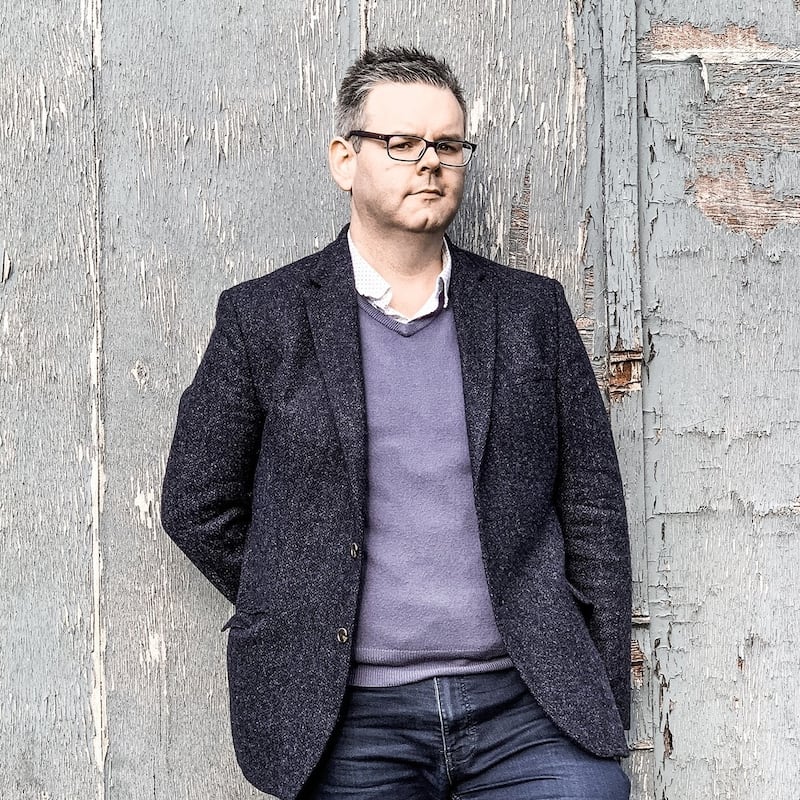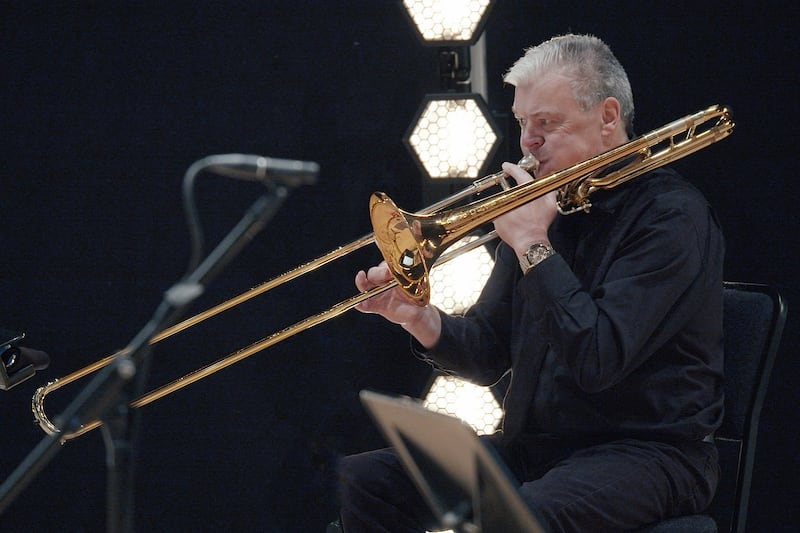My chat with Ryan Molloy, multi-instrumentalist extraordinaire and recent winner of the Gradam Ceoil TG4 for Composer of the Year, started with a version of one of the most important unanswered questions in the history of mankind - which came first, the chicken or the egg?
But in Ryan’s case, it was a question of: “Which came first? Was it traditional music? Or was a classical?”
His answer is instantaneous.
“Traditional music. One hundred per cent,” he says, unsurprisingly, for someone who grew up in Pomeroy.
“Yeah, traditional music was always there. I come from an area where there was quite a bit of traditional music, from Cathal Hayden country.
“And not only that, but there was quite a lot of other really good musicians in the area so trad music was always around.”
Ryan started playing the fiddle when he was seven and it was only in his teens that classical music followed, when he learned the piano more formally.
- Lúnasa, Lumiere, Mary Dillon, Neil Martin and Cherish the Ladies lead the Belfast Tradfest headliners for July festivalOpens in new window
- Rostrevor and Carlingford joined in song, music and a shared sense of place - TradOpens in new window
- Trad: Niamh Bury on breaking the boundaries of Irish FolkOpens in new window
He says his parents weren’t particularly musical but his father taught him a few chords on the guitar and, although she would admit to not being a great singer, Ryan would love listening to his mother singing about the house.
What Ryan’s parents did do however was to “very unceremoniously drag us to céilís, sometimes twice a weekend, all over the country”.
“God, I hated it,” says Ryan. “I hated the repetitiveness of it. The same dances, the same jokes over and over again used to do my nut in, plus the the fact that everyone else was about 50 or 60 years older than you. So I wouldn’t be the biggest lover of dance,” he smiles.
Which of course is great, as it led Ryan to rely on his own musical imagination as a composer and also as an accompanist.
I ask him what the role of an accompanist is in traditional music. Is it to fill in the gaps that the other instruments leave?
For anyone who thinks that accompanists play second fiddle (pun intended) to the ‘main’ musicians, Ryan’s answer is illuminating.
“I see being an accompanist as my very happy place,” he says.
“That’s what I love doing. It trumps everything else. It trumps composition, it trumps playing solo. For me, it’s what music is about.
“I’ve always likened it to being like colouring in for adults...”
For Ryan, being an accompanist is also about solving little problems.
“You just have to be listening and I just love that little problem, it’s so nice to do,” he says.
“And because you’re playing a harmonic instrument, quite often there’s a lot of space where you can bring your own voice to the table. I love that. Particularly when you do something that makes a solo performer go: ‘Oh, gosh, I didn’t I didn’t expect that.’
“It’s such fun. That’s what I wanted to do. Even as a career, I wanted to be an accompanist. I wanted to be a classical accompanist because I loved working with singers and string instrumentalists.
“Especially when I was at Queen’s, I did a lot of accompaniment work there and I just loved the idea of making music with other people and us going on a journey together to find out what it is you want to do in a particular piece, what sound do you want to make? And I loved that feeling of supporting but also being supported in an ensemble situation? So it’s class.”
As far as composing was concerned, Ryan did a lot of it in his spare time as a teenager and saw it as a conduit for him wanting to be a good classical performer, but he claims he was never going to be a good classical performer. And then different musical experiences popped into his life.
“In my later teens, I got introduced to other bands, other kinds of music,” he recalls.
“Riverdance came out. It was my first encounter with a French Canadian band called La Bottine Souriante who opened my mind to the possibility of mixing trad and jazz and whatever you’re having yourself.
“That was a real epiphany. It transformed both my plan and what I wanted to do, compositionally.”
So, while known for his traditional accomplishments, the Tyrone man also finds great fun in playing classical music
“I didn’t pursue it, I should have done, but anytime I get a chance to accompany someone classically, I find it’s such great fun,” says Ryan.
“I do a lot of trad stuff and that’s great but there’s another space in the classical vein that I really like to to explore.”

Of course, Micheál Ó Súilleabháin, Shaun Davey, Neil Martin and others have shown that you can successfully amalgamate classical and traditional and there is some of that going on on Ryan’s first album, Pianophony, with singer Shauna Mullin.
Ryan says he regrets not being more adventurous on the album but I tell him I don’t care what he thinks: I love the album of traditional tunes and others written by Ryan himself.
He has also recorded Tempered, an album of traditional tunes on uilleann pipes and piano; Innisfáil, a piece he composed and recorded with American pianist Alexander Bernstein; and also Buaine na Gaoithe, commissioned by The Damselfly Trio and featuring Death and the Post Office, a poem by Martin Dyar about the slow death of rural Ireland.
Overall, Ryan – who is associate professor of composition at Maynooth University – has recorded on over 30 albums as a pianist, composer and arranger and he was an RTÉ Radio 1 Folk Awards Best Folk Instrumentalist nominee in 2020 and 2021.
He and I agree that music should be about fun but for Ryan, it has to be about transcendence.
“You can be sorrowfully transcendent, you can be joyfully transcendent, and I think music has the propensity to do this more than most, because it’s an abstract language. That’s why music is so amazing,” he explains.
“It can help us transcend much more readily than some other some other art forms. You could be watching a film and the dialogue might get in the way but with music, there’s not necessarily a verbal message being delivered and so it’s possible to just access that higher plane a bit more easily,” he says.
It’s hardly surprising then that Ryan played at the Gradam Ceoil TG4 awards in Limerick this week, where he was a worthy winner of the Composer of the Year award, but I think this short chat has shown that he is much more than that.








